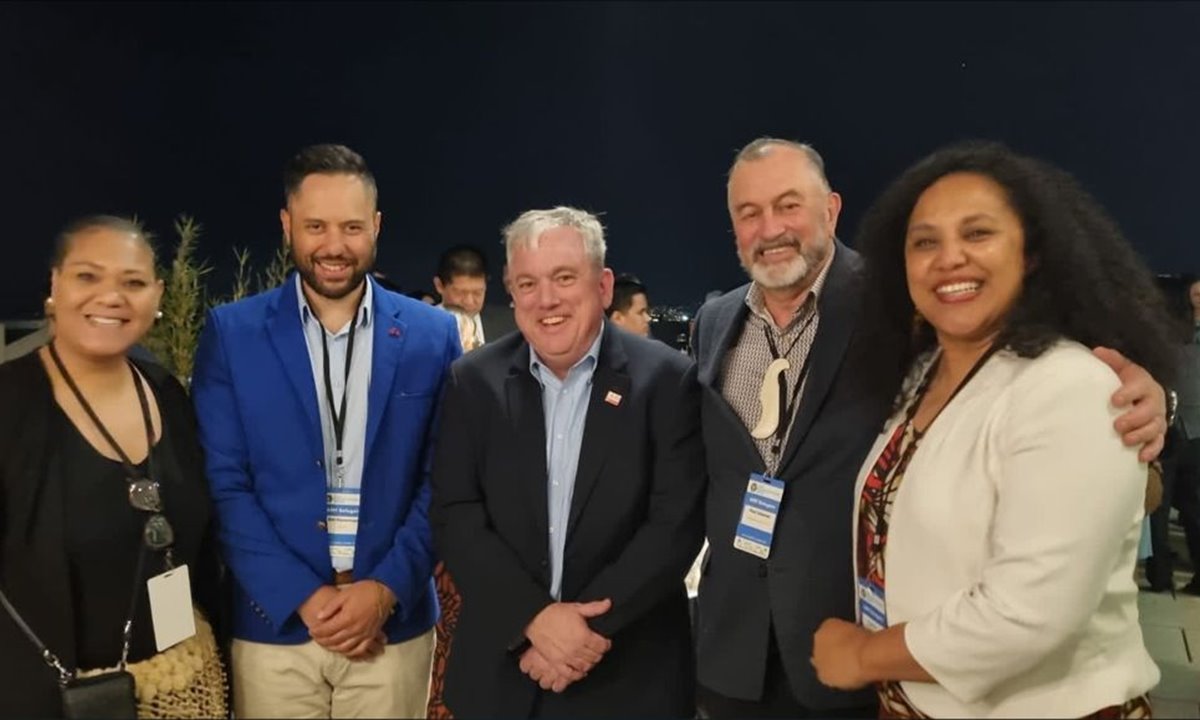Waikato Pacific Business Network Chairperson and WEL Energy Trust Chair Rachel Afeaki represented the Waikato on the global stage at this year’s APEC Economic Leaders’ Week in San Francisco last month, which she attended as a member of the New Zealand delegation.
As well as creating an opportunity to collaborate and engage with leaders from across the Asia-Pacific region, with a theme of ‘Creating a Resilient and Sustainable Future for All’, many of the week’s insights apply to the Waikato region’s transition to a low emissions economy.
Highlighting how we can benefit from bold community-level leadership, the importance of protecting vulnerable groups’ interests and the role Pasifika leaders will play, Rachel shares her reflections from the APEC Economic Leaders’ Week below.
Opportunities and challenges for the Waikato region’s transition to a lower emissions economy
New Zealand’s delegation of leaders heard clearly that our fellow APEC economies too share the challenge of wrestling with the broad and complex structural reform required to decarbonise supply chains, energy supplies, and transportation systems.
One of the biggest challenges discussed at the summit was the need for community-level interventions to account for the needs of vulnerable groups during the global transition to a low emissions economy.
It is increasingly urgent that we address the impact of climate change on diverse communities from both national and local perspectives, and at a grassroots level.
This is relevant to the Waikato region as we work with local communities to respond to extreme weather events, build climate resilience, and transition to sustainable energy sources to fuel our key industries.
Investment in education, workforce development, and awareness raising will be vital to ensure impacted communities, businesses and key sectors are prepared for the transition and able to benefit from the new growth areas that will arise.
With a long history of energy generation, significant existing expertise, infrastructure and natural assets that can be repurposed for new, clean energy sources, the Waikato will play a critical role in shaping the trajectory of New Zealand’s renewable energy sector. Although we’re already advantaged with 80% renewable energy production, this is contrasted by high levels of carbon emissions and projected future population growth.
In the race to generate, store and supply renewable energy, there is an opportunity for the Waikato to lead by working collaboratively to maximise the benefits that flow to local communities.
The importance of Pasifika leaders in the sustainable growth of low emissions economies
Enabling representation from the South Pacific is key to the global transition to a low emissions economy.
The 21 APEC member economies account for nearly 40% of the global population, almost half of global trade, and approximately 60% of global GDP. Our contribution is significant, but our leadership in pioneering a ‘just’ transition is made necessary by the significant, and in some cases existential, risks that climate change poses for many Pacific nations.
Here in the Waikato, the transition to a low emissions economy will not only mitigate climate change risks but provide our region with sustainable economic development opportunities and models that can be shared with our neighbours across the Pacific.
The Pasifika population in the Waikato region has grown an impressive 61% in the past ten years, and there is no doubt that this community will play an important role in the Waikato’s future. It is important that these population shifts are considered in our region’s decision-making for sustainable growth.
Cross-regional collaboration led by the Waikato Pacific Business Network is an example of the Pasifika leadership that is giving the Waikato a voice in the global conversation.
Strong alignment to the Waikato’s priorities
As the Government and local councils continue to develop their low emissions strategies and regulatory structures, a strong foundation of proactive community engagement will ensure the unique needs of our region are met.
The week’s theme of ‘Creating a Resilient and Sustainable Future for All’ aligns with the Waikato’s Regional Economic Priorities, which outline the region’s key growth opportunities and enablers. Our strengths in food and energy production, a young workforce, and significant wind and water resources place the Waikato in a strong position to transition to more sustainable industry practices and develop new growth sectors.
A resilient and sustainable future needs to be underpinned by cross regional collaboration that represents our region’s communities and champions Pasifika voices. We are not an island unto ourselves, but a part of the Moana-nui-a-kiwa, through identity, trade, environment, and migration. An authentic, collective approach is needed to support a ‘just’ transition that creates local opportunities and enables a low carbon future.


